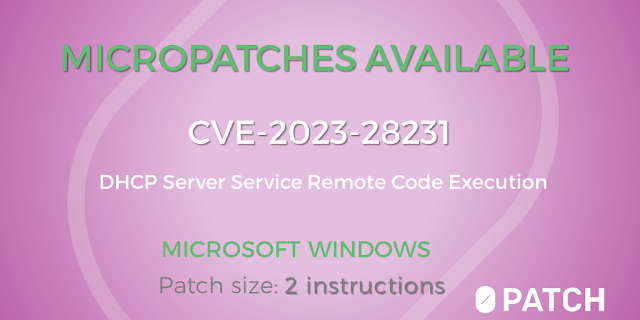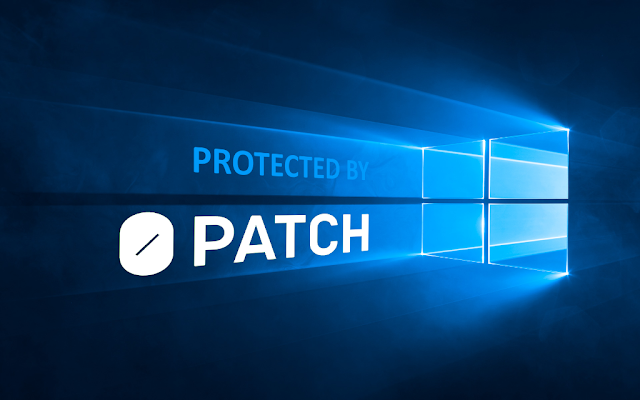April 2023 Windows Updates brought a fix for CVE-2023-28231, a remote code execution vulnerability in DHCP Server service. The vulnerability was reported to Microsoft by security researcher YanZiShuang.
Subsequently, Numen Cyber published a POC and DarkRelay Security Labs published their analysis, both of which allowed us to reproduce the issue and create a
micropatch for Windows computers that haven't received an official fix
from Microsoft.
While
still-supported Windows servers have already received an official
vendor fix for this vulnerability, Windows Server 2008 R2 isn't receiving security fixes from Microsoft anymore. In order to
protect these systems, we have created our own micropatch for this
vulnerability, which is available through the 0patch service.
Our patch is logically identical to Microsoft's.
Micropatch Availability
The micropatch was written for the following security-adopted versions of Windows with all available Windows Updates installed:
- Windows Server 2008 R2
This micropatch has already been distributed to, and applied on, all online 0patch Agents in PRO or Enterprise accounts (unless Enterprise group settings prevent that).
Vulnerabilities like this one get discovered on a regular basis, and
attackers know about them all. If you're using Windows that aren't
receiving official security updates anymore, 0patch will make sure these
vulnerabilities won't be exploited on your computers - and you won't
even have to know or care about these things.
If you're new to 0patch, create a free account in 0patch Central, then install and register 0patch Agent from 0patch.com, and email sales@0patch.com for a trial. Everything else will happen automatically. No computer reboot will be needed.
We'd like to thank Numen Cyber for sharing their POC, and DarkRelay Security Labs for sharing their analysis, which allowed us to create a micropatch and protect our users against this attack. We also encourage all security researchers to privately share their analyses with us for micropatching.




